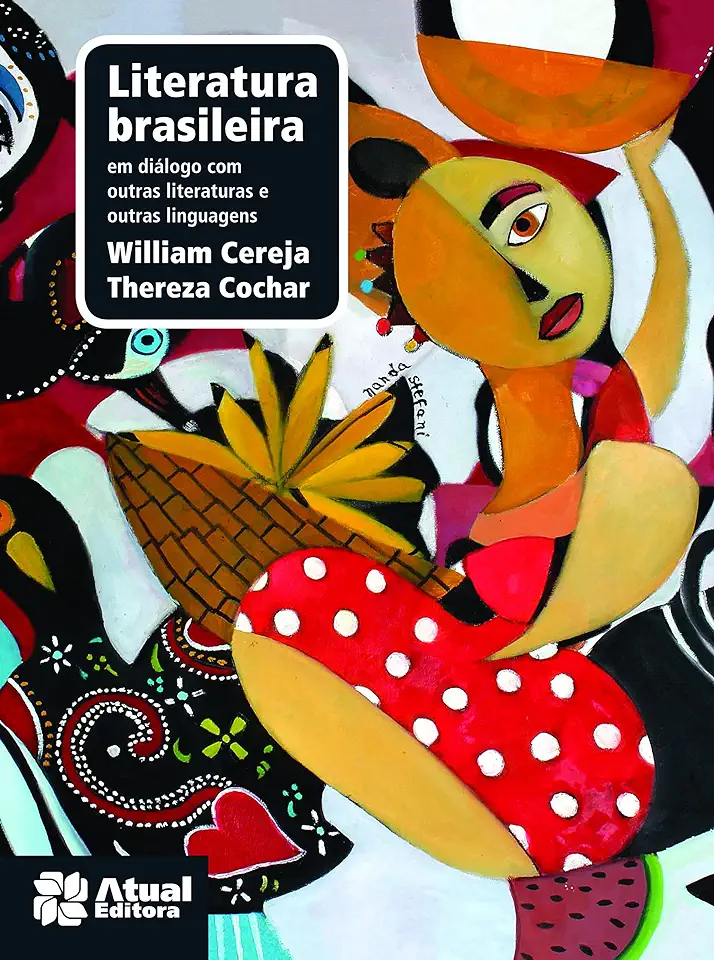
Overview of Portuguese Literature - William Roberto Cereja and Thereza Cochar Magalhães
Overview of Portuguese Literature: A Comprehensive Guide to the Rich Literary Heritage of Portugal and Brazil
Introduction: Unveiling the Treasures of Portuguese Literature
Portuguese literature, spanning centuries and encompassing a vast array of genres, stands as a testament to the cultural and linguistic diversity of Portugal and Brazil. This comprehensive overview, meticulously crafted by William Roberto Cereja and Thereza Cochar Magalhães, invites readers to embark on an enthralling journey through the literary landscape of these two nations.
Chapter 1: The Foundations of Portuguese Literature
The book delves into the early roots of Portuguese literature, tracing its origins back to the medieval period. Readers are introduced to the foundational works of troubadours and the emergence of the Portuguese language as a literary medium. This chapter provides a glimpse into the rich tapestry of early Portuguese literature, setting the stage for the literary explosion that followed.
Chapter 2: The Golden Age of Portuguese Literature
The 16th century marked a golden era for Portuguese literature, characterized by an outpouring of literary masterpieces. This chapter explores the works of renowned figures such as Luís de Camões, whose epic poem "Os Lusíadas" stands as a cornerstone of Portuguese literature. The chapter also delves into the vibrant literary scene of the time, showcasing the diverse range of genres that flourished during this period.
Chapter 3: The Baroque and Neoclassical Periods
The book continues its exploration of Portuguese literature through the Baroque and Neoclassical periods. Readers are introduced to the intricate wordplay and elaborate imagery that defined Baroque literature, as exemplified by the works of poets such as Francisco Rodrigues Lobo and António Vieira. The chapter also examines the influence of Neoclassicism on Portuguese literature, highlighting the shift towards reason and order in literary expression.
Chapter 4: Romanticism and Realism
The 19th century witnessed the rise of Romanticism and Realism in Portuguese literature. This chapter delves into the emotional intensity and individualism that characterized Romantic literature, as embodied in the works of Almeida Garrett and Camilo Castelo Branco. It also explores the emergence of Realism, which brought a focus on social and political issues, as exemplified by the writings of Eça de Queirós.
Chapter 5: Modernism and Contemporary Literature
The book concludes its journey through Portuguese literature by examining the transformative impact of Modernism and contemporary literature. Readers are introduced to the experimental techniques and innovative styles that defined Modernism, as seen in the works of Fernando Pessoa and José Saramago. The chapter also explores the diverse voices and themes that have shaped contemporary Portuguese literature, showcasing the vibrancy and relevance of Portuguese literature in the modern world.
Conclusion: A Celebration of Portuguese Literary Excellence
"Overview of Portuguese Literature" stands as an indispensable resource for anyone seeking to delve into the rich literary heritage of Portugal and Brazil. With its comprehensive coverage, engaging narrative, and insightful analysis, this book is a must-have for scholars, students, and literature enthusiasts alike. Embark on this literary journey and discover the treasures that Portuguese literature holds, leaving you captivated and eager to explore further.